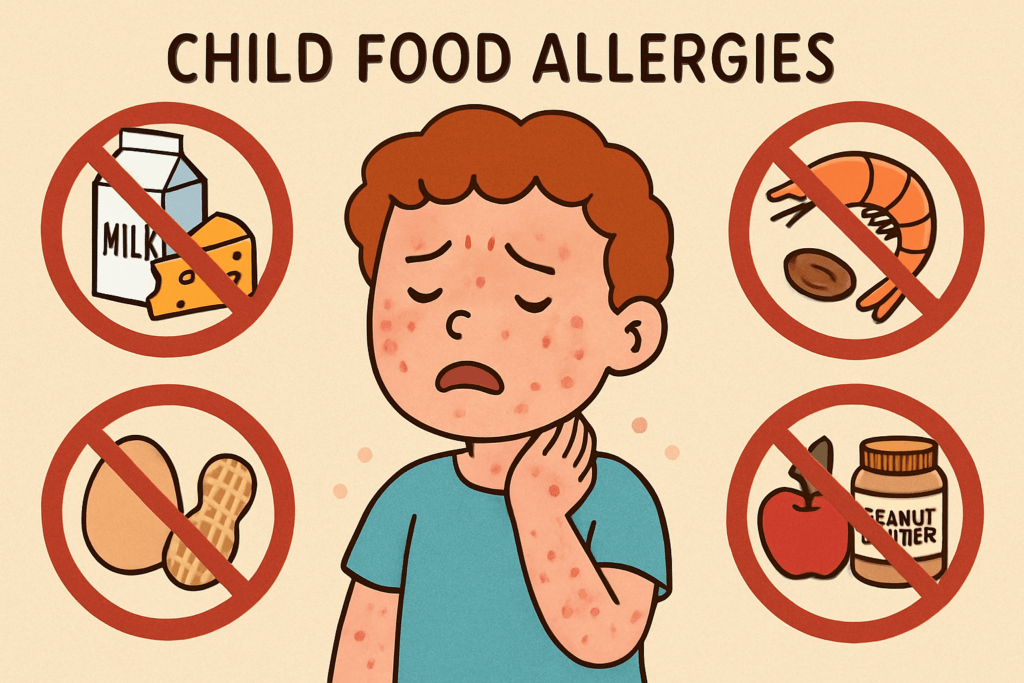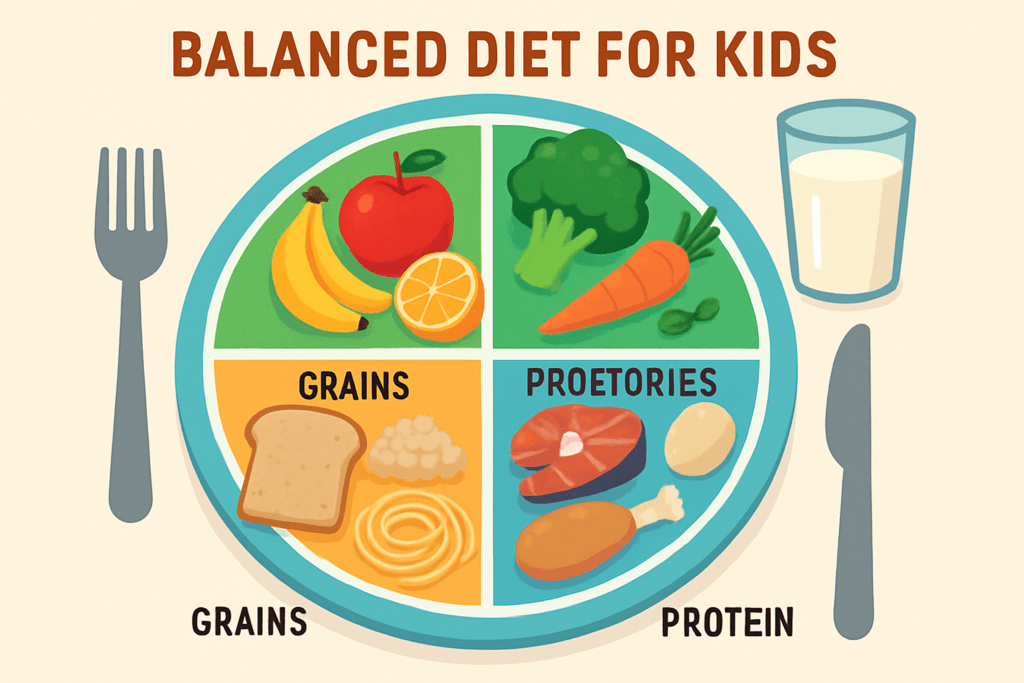Understanding Food Allergies in Children: A Straightforward Guide
- Introduce the prevalence and rising awareness of child food allergies.
- Why parents and caregivers need to know the basics.
- Briefly mention distinction from food intolerances.
What Happens After Winning Millions?
Winning a life-changing lottery jackpot is every player’s dream, but few are prepared for what comes next. The sudden influx of wealth can bring excitement, but also a wave of challenges. Here are some important elements winners face after their big win.
The Financial Reality of Winning
Many winners face critical financial decisions almost immediately:
- Taxes and Legal Issues: A large chunk of the winnings often goes to taxes, and failure to plan can lead to legal troubles.
- Investing vs. Spending: Some winners hire financial advisors for long-term security, while others spend impulsively.
- Budgeting for the Future: Without proper money management, even the biggest jackpots can disappear quickly.
A Lifestyle Overhaul
A sudden fortune changes life in more ways than one:
- Luxury Purchases: Mansions, sports cars, and extravagant vacations become instantly affordable.
- Social Pressure: Long-lost friends and distant relatives can reappear, expecting a share of the winnings.
- Privacy Challenges: Unwanted media attention and public scrutiny can become a burden.
While some winners embrace their new wealth openly, others choose to live discreetly to avoid pressure and expectations.
Giving Back and Creating a Legacy
For some, wealth is not just about personal luxury—it’s an opportunity to make a difference. Many winners choose to:
- Charitable Giving: Donate to charities and community projects.
- Education Support: Fund scholarships or support education initiatives.
- Business Investments: Invest in businesses creating jobs and opportunities.
Some lottery winners go from players to philanthropists, proving that wealth can be used to make a lasting impact. However, not all stories end positively—without careful management, many winners find themselves financially troubled within a few years.
What Are Food Allergies?
Food allergies in kids are sometimes misunderstood, so let’s strip things down to basics. A food allergy happens when a child’s immune system overreacts to something it mistakenly thinks is dangerous—usually a protein in the food. The immune system doesn’t mess around; it launches a defense, which can trigger classic allergic reactions like hives, swelling, or in more serious cases, trouble breathing.
It’s not the same as a food intolerance in kids. That’s a different deal. Food intolerance is about the digestive system having trouble breaking down or processing certain foods (think lactose intolerance and tummy aches, not hives or rashes). Allergies = immune system; intolerances = digestion.
Stats back up the realness of this issue. Around 8% of children in the U.S. deal with food allergies (that’s about 1 in 13 kids). Little ones—toddlers and preschoolers—are especially likely to be diagnosed, but allergies can pop up at any age.
The usual suspects? Milk, eggs, peanuts, tree nuts, wheat, soy, fish, and shellfish. Together they cause most allergic reactions in kids, though just about any food can be a trigger.
Bottom line: If you’re wondering whether a kid’s odd reaction to food is a food intolerance or something more serious, remember—intolerances are uncomfortable, but allergies can be dangerous and demand attention.
What Happens After Winning Millions?
Winning a life-changing lottery jackpot is every player’s dream, but few are prepared for what comes next. The sudden influx of wealth can bring excitement, but also a wave of challenges. Many winners find themselves overwhelmed by financial decisions, from managing taxes to making smart investments. Some handle it well, while others struggle with reckless spending that drains their fortune faster than expected.
The Financial Reality of Winning
Many winners face critical financial decisions almost immediately:
-
Taxes and Legal Issues
- A large chunk of the winnings often goes to taxes, and failing to plan can lead to legal troubles.
-
Investing vs. Spending
- Some winners hire financial advisors to ensure long-term security, while others spend impulsively without a plan.
-
Budgeting for the Future
- Without proper money management, even the biggest jackpots can disappear quickly.
A Lifestyle Overhaul
A sudden fortune changes life in more ways than one:
-
Luxury Purchases
- Mansions, sports cars, and extravagant vacations become instantly affordable.
-
Social Pressure
- Long-lost friends and distant relatives often reappear, expecting a share of the winnings.
-
Privacy Challenges
- Some winners struggle with unwanted media attention and public scrutiny.
While some winners embrace their new wealth openly, others choose to live discreetly to avoid pressure and expectations.
Giving Back and Creating a Legacy
For some, wealth is not just about personal luxury—it’s an opportunity to make a difference. Many winners choose to:
- Donate to charities and community projects.
- Fund scholarships or support education initiatives.
- Invest in businesses that create jobs and opportunities.
Some lottery winners go from players to philanthropists, proving that wealth can be used to leave a lasting impact. However, not all stories end positively—many who fail to manage their winnings properly find themselves bankrupt within years.
Embracing or Avoiding the Spotlight
Adjusting to newfound wealth isn't always straightforward. Winners must decide whether to embrace the spotlight or live more privately:
- Public Attention – Some invite the media attention while others shun it, balancing the allure of fame against personal privacy.
- Selective Generosity – Deciding who receives financial help can strain relationships and lead to complicated social dynamics.
Preparing for a New Reality
Ultimately, effective money management and wise investment choices are critical for maintaining wealth and happiness:
- Financial Planning – Consulting with experts can prevent common pitfalls and ensure a secure financial future.
- Establishing Goals – Beyond immediate pleasures, setting long-term personal and financial goals is essential.
Many stories of lottery winners reflect the importance of responsible planning, whether they choose to indulge in luxury, maintain a low profile, or give generously to causes they care about. In the end, how winners manage their fortune often defines their future happiness and legacy, highlighting the complexity that lies beyond the initial thrill of winning millions.
Preventing Allergy Episodes: What Parents Can Do
Prevention is all about preparation and habit. Start by making your kitchen a safe zone—read labels every single time. Ingredients change, and so do warnings for cross-contact. Wash hands, dishes, and counters well after handling allergens.
When your child is around others, communication is key. Talk to teachers, coaches, babysitters—anyone who might offer food. Send clear instructions (in writing if possible) about what your child can and can't eat. Consider giving a list or card of safe and unsafe foods.
Your child is your greatest ally. Teach them early to ask before eating, recognize their symptoms, and know when to get help. Practice using an EpiPen together, so it’s not scary or confusing in an emergency.
Always keep medication (EpiPen or similar), antihistamines, and your child’s emergency plan nearby. This isn’t just for school—bring it to playdates, restaurants, and family events. Double-check expiration dates and teach others how to use these tools.
At home, reduce everyday risks: store allergens out of reach, use separate utensils, and if possible, make family meals allergy-friendly for everyone. In schools, partner with staff to create an allergy-safe classroom—this might mean snack policies, safe treats, or nut-free zones.
It’s a lot, but these steps turn anxiety into routine. With smart systems and clear routines, you lower the daily risk and help your child feel secure, included, and ready to tackle life.
Supporting Kids to Live Healthy, Active Lives
Here’s some straight talk: a food allergy isn’t a prison sentence. Yes, it means being mindful—sometimes extra-vigilant—but it doesn’t mean your kid sits out from fun, friendships, or a good, sweaty game of tag.
First off, encourage your child to get moving. Kids with food allergies thrive on routine physical activity for the same reasons as other children—it boosts mood, builds confidence, and keeps bodies strong. The trick is working with coaches, teachers, and teammates so everyone’s on the same page about what to do if there’s an allergic reaction. Most groups and organizations are familiar with food allergies by now, but don’t be shy about speaking up, sharing your emergency plan, and teaching your child to do the same. They need to know their triggers, but also know their strengths.
Second, let your child take the lead where possible. Teach them to recognize safe foods, advocate for themselves, and not miss out on special events, parties, or field trips. Inclusion matters—it’s better for everyone’s growth (and sanity). Some families swap treats with safe alternatives or stash “emergency snacks” for special occasions. Try a little creative planning.
The overall message: Food allergies need respect, not fear. With some simple routines, communication, and prep, kids can live boldly, play hard, and get every bit of life’s adventure. Keep your focus on what’s possible—not what’s off-limits. That’s how allergic kids become strong, resilient adults.
What Happens After Winning Millions?
Winning a life-changing lottery jackpot is every player’s dream, but few are prepared for what comes next. The sudden influx of wealth can bring excitement but also a wave of challenges. Many winners find themselves overwhelmed by financial decisions, from managing taxes to making smart investments. Some handle it well, while others struggle with reckless spending that drains their fortune faster than expected.
The Financial Reality of Winning
Many winners face critical financial decisions almost immediately:
- Taxes and Legal Issues: A large chunk of the winnings often goes to taxes, and failing to plan can lead to legal troubles.
- Investing vs. Spending: Some winners hire financial advisors to ensure long-term security, while others spend impulsively without a plan.
- Budgeting for the Future: Without proper money management, even the biggest jackpots can disappear quickly.
A Lifestyle Overhaul
A sudden fortune changes life in more ways than one:
- Luxury Purchases: Mansions, sports cars, and extravagant vacations become instantly affordable.
- Social Pressure: Long-lost friends and distant relatives often reappear, expecting a share of the winnings.
- Privacy Challenges: Some winners struggle with unwanted media attention and public scrutiny.
While some winners embrace their new wealth openly, others choose to live discreetly to avoid pressure and expectations.
Giving Back and Creating a Legacy
For some, wealth is not just about personal luxury—it’s an opportunity to make a difference. Many winners choose to:
- Donate to charities and community projects
- Fund scholarships or support education initiatives
- Invest in businesses that create jobs and opportunities
Some lottery winners go from players to philanthropists, proving that wealth can be used to leave a lasting impact. However, not all stories end positively—many who fail to manage their winnings properly find themselves bankrupt within years.
Your Action Plan
Here’s the bottom line: Know the signs. Take steps to prevent exposure. Teach your child—and everyone around them—how to handle food allergies with confidence, not fear.
First, recognize what an allergic reaction looks like for your child, and don’t brush off mild symptoms. Make sure you, your child, and any adult in their life can spot the difference between a mild rash and a full-blown emergency.
Second, prevention is your daily armor. Read every label. Double-check restaurant food. Let school staff, family, and friends know your child’s needs. Prepare for surprises with an action plan (keep an EpiPen handy, everywhere).
Last, empower your child. Talk honestly about their allergies, so they feel in control instead of singled out. Confidence comes from practice and knowledge—yours and theirs.
You’re not just keeping your child safe; you’re building their independence and resilience. With the right basics, child food allergies don’t have to rule anyone’s life. Just keep things simple: Recognize, prevent, empower. The rest will follow.


 Senior Parenting Writer
Senior Parenting Writer
